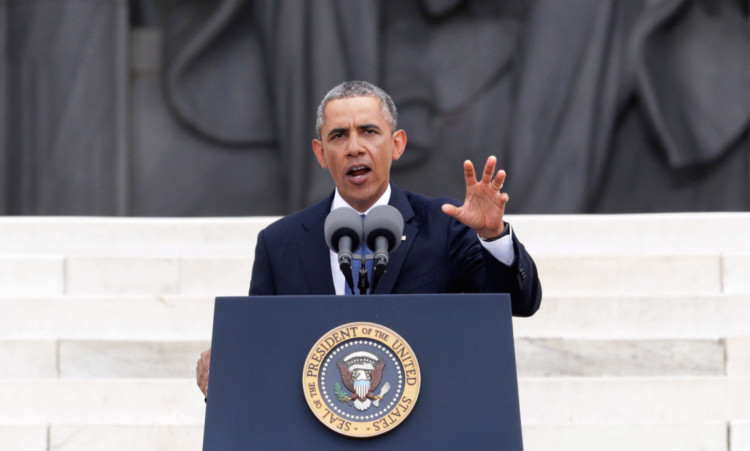US President Barack Obama has led civil rights pioneers in a ceremony marking the 50th anniversary of the March on Washington, where Martin Luther King’s “I Have a Dream” speech roused the 250,000 people who rallied there for racial equality.
Large crowds gathered at the Lincoln Memorial in the capital to hear the first black US president speak.
Referring to the turbulent 1960s in America, Mr Obama said: “There were couples in love who couldn’t marry. Soldiers who fought for freedom abroad, but couldn’t find any at home.
“America changed for you and for me.”
But he pointed to the nation’s economic disparities as evidence that Dr King’s hopes remain unfulfilled.
The name of that original march was the March on Washington for Jobs and Freedom.
Mr Obama has said Dr King is one of two people he admires “more than anybody in American history” the other being Abraham Lincoln.
Thousands of people were in attendance in wet weather.
Earlier, Oprah Winfrey said Martin Luther King Jr forced the US “to wake up, look at itself and eventually change”.
The TV personality said the civil rights leader’s lessons continue to inspire.
Former US president Bill Clinton said the anniversary marks “one of the most important days in American history”.
Mr Clinton said that march, and that speech, “changed America… opened minds and melted hearts… and moved millions”.
When the first march took place, the US south still had separate restrooms, schools and careers for blacks and whites.
In the two years following the 1963 march, president Lyndon Johnson signed the landmark Civil Rights Act and Voting Rights Act to outlaw discrimination, and Dr King received the Nobel Peace Prize.
